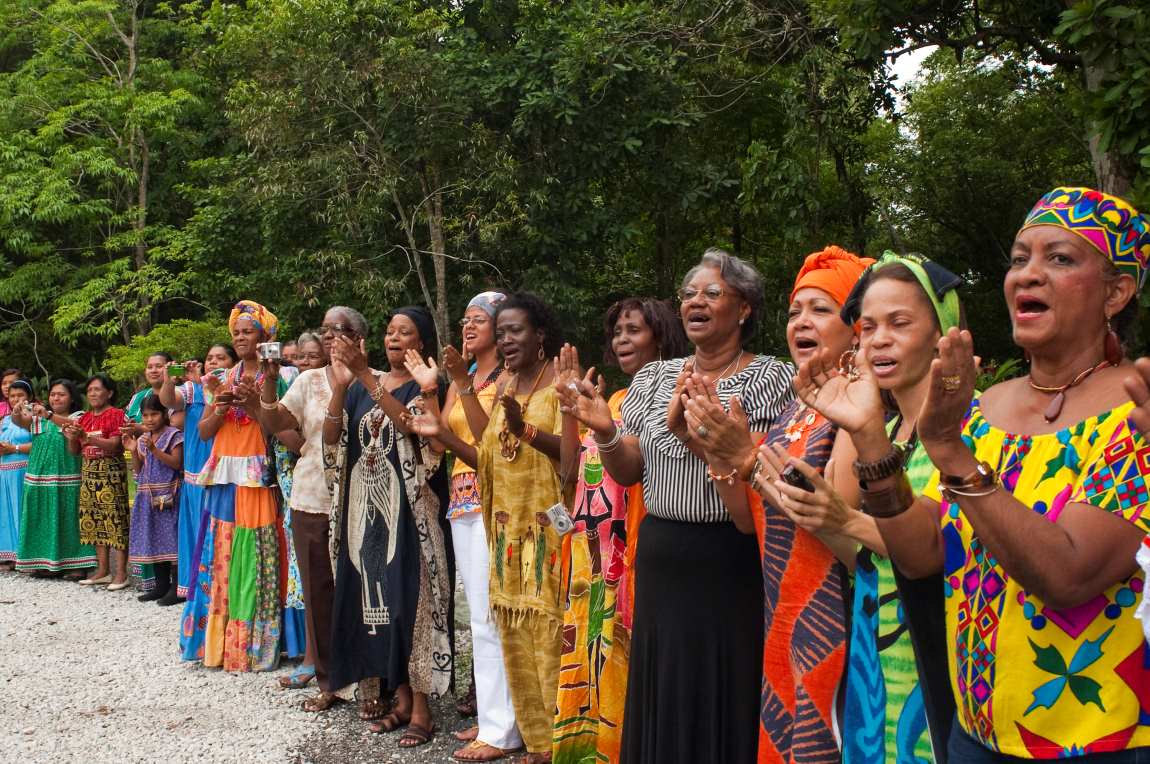By Yuen Yoong Leong, UN Sustainable Development Solutions Network, Sunway University in Kuala Lumpur | 360info
Inspiring women are driving sustainable solutions and empowering communities, showcasing their potential to shape a more equitable and sustainable future.
Women have a key role to play at the forefront of climate action.
They drive policy change, inspire sustainable solutions and champion environmental protection and social justice. From government positions to corporations and grassroots movements, their leadership is crucial.
However, there is a caveat. While a privileged few women hold influential positions, the vast majority are often excluded from the conversation. Women are significantly under-represented in decision-making roles at all levels, including within the climate change arena.
Only 15 out of 133 world leaders who attended COP28 in 2023 were women. While women’s leadership often flourishes in communities, their voices are less prominent at national level.
Climate frontline
A UN Women report warns that climate change could push up to 158 million more women and girls into poverty by 2050. Women and girls constitute 80 percent of climate-displaced populations, facing heightened risks.
Research underscores the connection between women’s leadership and stronger climate policies, highlighting the importance of empowering women to play a greater role in shaping climate solutions.
Still, a few outstanding women scientists, women academics, women indigenous leaders and women philanthropists are leading the charge for change and offer hope for the millions whose voices are yet to be heard.
Datu Dr Lulie Melling, for example, is the first Asian woman elected to the International Peatland Society’s executive board. Her continued leadership underscores the invaluable contributions of women to tropical peatland research and the broader scientific community.
Women are also leading the transition to a low-carbon future.
Professor Phoebe Koundouri, a global authority on sustainable development, is spearheading efforts to integrate climate and energy models worldwide through the UN Sustainable Development Solutions Network’s Global Climate Hub. Her leadership is instrumental in optimising decarbonisation pathways globally.
As founder of Partners of Community Organisations in Sabah, Anne Lasimbang has empowered indigenous communities in Borneo for over two decades through education, human rights, and environmental initiatives. The organisation’s successful implementation of micro-hydro and biogas projects, in partnership with Green Empowerment, showcases the transformative impact of women-led initiatives in providing clean energy and improving livelihoods.
Indigenous knowledge
Indigenous women such as Hindou Oumarou Ibrahim, who is at the forefront of climate activism in Africa, offer invaluable perspectives rooted in ancestral wisdom. Oumarou Ibrahim’s emphasis that “nature is our home, not a commodity” underscores the profound disconnect between Western economic models and indigenous worldviews.
Oumarou Ibrahim’s call for long-term, community-led approaches, as opposed to short-term, donor-driven initiatives, is a critical step towards true climate justice. She speaks of approaches that span seven generations, rather than quick goals of 2030 or 2050, for example.
Crucially she also points out that rather than viewing indigenous peoples as beneficiaries, the international community must recognise them as equal partners in shaping our planet’s future.
Women-led organisations are playing a pivotal role in the global clean energy transition, driving innovation and social impact.
Solar Sister exemplifies this trend by empowering African women as clean energy entrepreneurs, lifting communities out of poverty while addressing climate change. By providing training, support, and access to clean energy products, Solar Sister has created a powerful model for women’s economic empowerment and environmental stewardship.
The Solar Mamas project in Africa further highlights the transformative potential of women in the energy sector. By equipping women with technical skills and leadership training, the project has not only expanded access to clean energy but also elevated women’s status within their communities. Through initiatives like the ENRICHE module, these women are empowered to challenge gender norms and build a more equitable future.
Energy transition
Nicole Issepi, Director of Energy Innovation at the Bezos Earth Fund, is a visionary philanthropist who exemplifies the power of strategic philanthropy.
By identifying gaps in the energy transition landscape, Issepi is catalysing meaningful change. She emphasises the importance of addressing systemic barriers and empowering communities to step up, rather than simply funding well-known needs.
Issepi’s leadership in prioritising underrepresented areas of the energy transition is instrumental in accelerating progress towards a sustainable future.
As she aptly stated at COP28, “Headlines (targets, commitments) are overly rewarded now. With 3.6 billion people not having affordable energy, there should be more spotlight on action. More giving and taking is necessary. If people keep coming with their ten points, progress will be slow.”
Professor Kuntala Lahiri-Dutt AO‘s research on gender equality in natural resource management has significantly expanded our understanding of gender dynamics and social impacts within large-scale, capital-intensive extractive industries. This is particularly relevant to the energy transition, as many decarbonisation solutions rely on minerals that are extracted through mining operations.
A gender-responsive approach to decarbonisation can identify women who require specific support and resources, and seize opportunities to integrate climate change resilience, adaptation, and mitigation with women’s health programmes, particularly those focused on sexual and reproductive health and rights.
By adopting this approach, policymakers, corporations, and non-profit organisations can create more effective and inclusive climate solutions.
Yuen Yoong Leong is a director of sustainability studies at the UN Sustainable Development Solutions Network and a professor at Sunway University, Malaysia.
Originally published under Creative Commons by 360info™.
Featured image: Women across the globe are driving impactful climate action, from grassroots initiatives to global policy, yet remain underrepresented in decision-making roles. Credit: UN Women | Flickr | CC BY-NC-ND 2.0




